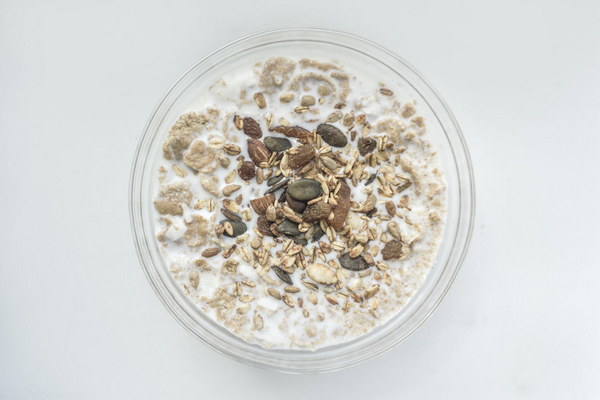How Long Does It Take for a Yin Deficiency Diet to Take Effect
In traditional Chinese medicine, yin deficiency is a common condition characterized by symptoms such as fatigue, heat sensation in the body, dry mouth, and red tongue with little coating. One of the most recommended treatments for yin deficiency is a dietary approach, which involves incorporating specific foods into your daily routine. But how long does it take for a yin deficiency diet to take effect? Let's delve into this topic to find out.
1. Understanding Yin Deficiency
Yin deficiency occurs when there is a lack of yin energy in the body, leading to a variety of symptoms. This imbalance can be caused by various factors, such as stress, excessive exercise, or a poor diet. To restore the balance, it is essential to focus on yin-nourishing foods and lifestyle changes.

2. The Role of Diet in Treating Yin Deficiency
Diet plays a crucial role in balancing the body's yin and yang energies. By incorporating yin-nourishing foods, you can help replenish the body's yin energy and alleviate the symptoms of yin deficiency. These foods typically include:
- Fruits: Pears, apples, figs, and kiwi
- Vegetables: Celery, cucumber, lotus root, and seaweed
- Grains: Oats, barley, and quinoa
- Nuts and Seeds: Almonds, walnuts, and flaxseeds
- Meat and Seafood: Chicken, fish, and shellfish
- Beverages: Green tea, coconut water, and soy milk
3. How Long Does It Take for a Yin Deficiency Diet to Take Effect?
The time it takes for a yin deficiency diet to take effect can vary from person to person, depending on the severity of the condition and individual factors. Generally, it may take anywhere from a few days to several weeks to notice significant improvements.
- Initial improvements: Within the first few days to a week, you may start to notice some changes, such as increased energy levels, improved sleep quality, and a reduction in heat sensations.
- Moderate improvements: After two to three weeks, you should see more noticeable improvements in your overall well-being. Your symptoms may become less frequent and intense.
- Long-term benefits: With consistent dietary changes and lifestyle adjustments, it may take several months to achieve long-term balance and alleviate the symptoms of yin deficiency.
4. Tips for a Successful Yin Deficiency Diet
To maximize the benefits of a yin deficiency diet, consider the following tips:
- Start slow: Gradually incorporate yin-nourishing foods into your diet, rather than making drastic changes all at once.
- Consistency is key: Stick to the diet for an extended period to see long-term results.
- Balance your diet: Ensure that your diet is well-rounded and includes a variety of nutrients, vitamins, and minerals.
- Monitor your progress: Keep track of your symptoms and overall well-being to gauge the effectiveness of the diet.
- Seek professional advice: Consult with a healthcare provider or a traditional Chinese medicine practitioner for personalized dietary recommendations.
In conclusion, the time it takes for a yin deficiency diet to take effect can vary, but with consistent dietary changes and lifestyle adjustments, you can expect to see improvements within a few days to several weeks. By focusing on yin-nourishing foods and maintaining a balanced diet, you can help restore the body's yin energy and alleviate the symptoms of yin deficiency.









